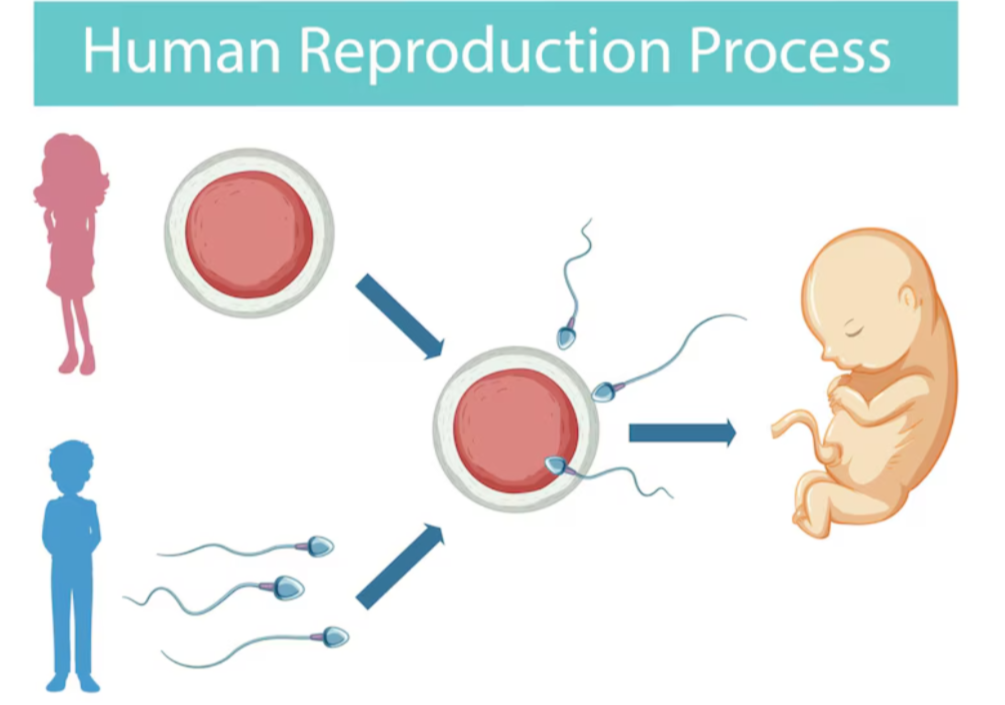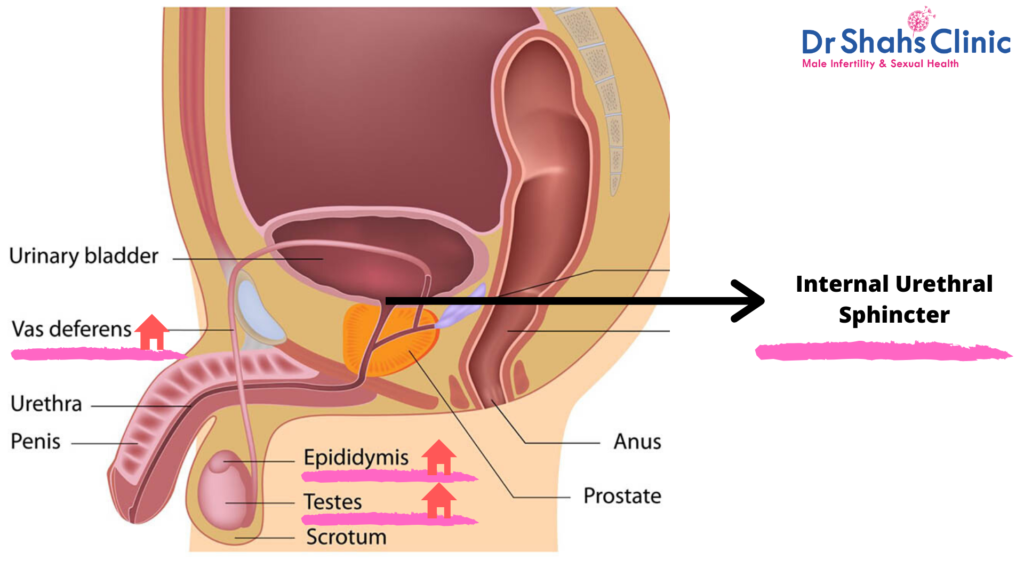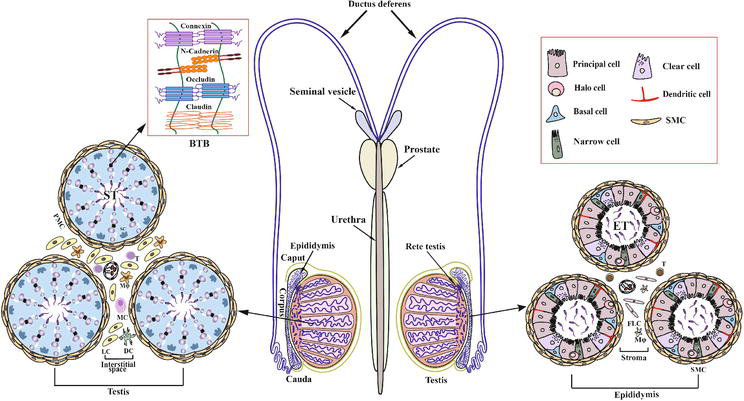
Unveiling Truth: Does Urine Kill Sperm in the Male Urethra?
Does Urine Kill Sperm in the Male Urethra: Embarking on the journey of understanding the male reproductive system is akin to unlocking the secrets of life itself. In this captivating exploration, we’ll venture into the intricate pathways and mechanisms that drive the propagation of life in the male body. From the moment of conception to the continuation of generations, the male reproductive system stands as a testament to the marvels of biological engineering. Join us as we delve into the depths of anatomy, physiology, and the wonders of nature’s design, unraveling the mysteries that underpin the very essence of human existence.

Understanding the Male Reproductive System
Welcome to the gateway of male fertility, where the intricate mechanisms of life begin. In this segment, we delve into the fascinating world of the male reproductive system, uncovering its wonders layer by layer. As humans, our existence hinges upon the miraculous process of reproduction, and at the heart of this process lies the male reproductive system. It’s not just a system; it’s a symphony of organs, hormones, and processes working seamlessly to perpetuate life.
We’ll take a stroll through the corridors of anatomy, exploring the intricate structures that make conception possible. From the testes, where the journey of sperm begins, to the intricate network of ducts and glands, every component plays a crucial role in the grand scheme of procreation. But understanding the male reproductive system goes beyond mere anatomy; it’s about grasping the essence of life itself. It’s about unraveling the mysteries of creation and appreciating the marvels of nature’s design.
So, buckle up as we embark on this enlightening journey, where science meets wonder, and curiosity leads the way. By the end of this exploration, you’ll not only understand the male reproductive system but marvel at the beauty of life’s perpetuation.
Journey of Sperm Through the Male Reproductive System
Embark with us on an awe-inspiring odyssey through the male reproductive system, where every step is a testament to the intricate dance of life. This journey begins in the hallowed chambers of the testes, where the magic of sperm production unfolds.

1. Formation of Sperm in the Testes
Enter the inner sanctum of male fertility, where the testes serve as the crucible of creation. Here, within the confines of seminiferous tubules, spermatogenesis takes place, a finely orchestrated symphony of cellular division and differentiation. Witness the transformation of primordial germ cells into mature spermatozoa, each equipped with the genetic blueprint for future generations.
2. Travel Through the Epididymis
As the newly formed spermatozoa emerge from the testes, they embark on a pilgrimage through the convoluted pathways of the epididymis. This coiled conduit serves as both guardian and mentor, nurturing the young spermatozoa to maturity. Over the course of their journey, the spermatozoa undergo crucial maturation processes, acquiring motility and resilience in preparation for their momentous quest.
3. Mixing with Seminal Fluids in the Ejaculatory Duct
At the threshold of ejaculation, the culmination of this remarkable voyage awaits. Here, within the confines of the ejaculatory duct, the spermatozoa unite with seminal fluids to form semen, the elixir of life. This fusion of sperm and seminal fluids not only provides nourishment and protection for the spermatozoa but also facilitates their propulsion towards their ultimate destination.
What Happens When Urine Mixes With Sperm in the Urethra?
Let’s dive into the intriguing realm where the paths of urine and sperm converge within the male urethra, unraveling the consequences of this unique interaction.

1. pH Levels and Sperm Survival
As urine mingles with sperm in the urethra, it introduces a dynamic interplay of pH levels that can significantly impact sperm survival. Urine typically exhibits varying levels of acidity, influenced by factors such as hydration status and diet. This fluctuating pH environment can pose challenges to the delicate balance required for sperm viability. While sperm are resilient, prolonged exposure to acidic conditions may compromise their motility and longevity, affecting their ability to navigate towards their intended destination.
2. Role of Urine in Flushing Out Sperm
Beyond its influence on pH levels, urine serves as a potent force in the urethra, exerting a flushing action that can expel sperm from the reproductive tract. With each urination, a wave of urine sweeps through the urethra, potentially carrying along any residual sperm present. This innate cleansing mechanism serves as a natural barrier against the accumulation of sperm within the male reproductive system, safeguarding against potential blockages or infections.
Does Urine Kill Sperm?
Let’s unravel the age-old question surrounding the potential lethal effects of urine on sperm viability, shedding light on the intricate interplay between these two elements within the male reproductive system.
1. The Acidic Nature of Urine
Urine, the liquid waste excreted by the kidneys, is inherently acidic due to its composition of various metabolic byproducts and electrolytes. This acidity creates a hostile environment for sperm, potentially posing challenges to their survival. The pH of urine can vary depending on factors such as hydration levels and dietary habits, with lower pH values indicating higher acidity. When sperm encounter acidic urine within the urethra, their delicate membranes may become compromised, leading to impaired motility and reduced viability.
2. Impact of Urine on Sperm Viability
The interaction between urine and sperm can have profound implications for sperm viability. While sperm are resilient cells capable of withstanding various environmental challenges, prolonged exposure to acidic urine may diminish their chances of successful fertilization. The acidic milieu within the urethra can disrupt the delicate balance of ions and molecules essential for sperm function, potentially hindering their ability to traverse the female reproductive tract and fertilize an egg.
Protection Mechanisms in the Male Reproductive System
Explore with us the ingenious defense mechanisms employed by the male reproductive system to safeguard sperm and ensure reproductive success amidst various challenges.

1. Mucus Lining in the Urethra
Within the intricate architecture of the male urethra lies a crucial line of defense: the mucus lining. This specialized layer acts as a protective barrier, shielding sperm from the potentially harmful effects of urine and other external factors. The mucus lining not only provides lubrication for the passage of sperm but also serves as a buffer against acidic conditions, maintaining an optimal microenvironment for sperm survival. By creating a barrier between sperm and the surrounding environment, the mucus lining plays a pivotal role in preserving sperm viability and facilitating their journey towards fertilization.
2. Sperm’s Ability to Survive in Various Conditions
While the male reproductive system provides a supportive environment for sperm, the journey towards fertilization is fraught with challenges. Despite encountering fluctuations in temperature, pH levels, and other environmental factors, sperm demonstrate remarkable resilience and adaptability. Through mechanisms such as capacitation and membrane fluidity adjustments, sperm can withstand a wide range of conditions, ensuring their viability and functionality upon reaching the female reproductive tract. This inherent ability to thrive in diverse environments underscores the evolutionary adaptations that have shaped sperm physiology, enabling successful fertilization in variable circumstances.
Factors Affecting Sperm Viability in the Urethra
Let’s delve into the myriad factors that influence the viability of sperm within the male urethra, shedding light on the crucial determinants that shape reproductive outcomes.
1. Frequency of Urination
The frequency of urination plays a pivotal role in determining the exposure of sperm to urine within the urethra. Frequent urination can result in more frequent flushing of the urethra with urine, potentially reducing the duration of sperm exposure to acidic conditions. Conversely, infrequent urination may lead to prolonged contact between sperm and urine, increasing the likelihood of detrimental effects on sperm viability. By understanding the impact of urination frequency on sperm survival, individuals can make informed choices to optimize reproductive health and fertility.
2. Health of the Individual
The overall health and well-being of an individual can significantly influence sperm viability within the urethra. Factors such as diet, exercise, and lifestyle habits can impact sperm quality and resilience. A balanced diet rich in essential nutrients and antioxidants can support optimal sperm production and function, while regular physical activity can improve circulation and hormonal balance. Conversely, poor dietary choices, sedentary behavior, and exposure to environmental toxins can compromise sperm health, increasing susceptibility to adverse effects within the urethra. By prioritizing health and wellness, individuals can enhance sperm viability and optimize reproductive outcomes.
Conclusion – Does Urine Kill Sperm in the Male Urethra
Does Urine Kill Sperm in the Male Urethra: The journey of sperm through the male reproductive system is a marvel of biological ingenuity, marked by intricate pathways and protective mechanisms. From the formation of sperm in the testes to their ultimate expulsion through the urethra, each step is orchestrated with precision to ensure the perpetuation of life.
Throughout this exploration, we’ve delved into the complex dynamics of urine-sperm interaction, considering the impact of pH levels, flushing mechanisms, and protective barriers on sperm viability. While urine may pose challenges to sperm survival within the urethra, the male reproductive system is equipped with ingenious defenses, such as the mucus lining and sperm’s inherent resilience, to mitigate these effects.
Moreover, factors such as the frequency of urination and the individual’s overall health play crucial roles in determining sperm viability within the urethra. By understanding and addressing these factors, individuals can optimize reproductive health and fertility, paving the way for successful conception and pregnancy.
As we reflect on the intricacies of the male reproductive system and its interaction with urine, we’re reminded of the awe-inspiring complexity of life’s perpetuation. Through continued research and education, we can unlock further insights into the mechanisms that govern reproductive biology, empowering individuals to make informed choices that support their reproductive goals.
In essence, the journey of sperm through the male urethra is not merely a physiological process but a testament to the wonders of creation and the resilience of life itself. As we navigate this journey, let us embrace the marvels of our biology and strive towards a future where reproductive health and fertility thrive.
Join us as we continue to unravel the mysteries of human reproduction, forging pathways towards a future of enhanced understanding and well-being for all.
FAQs – Does Urine Kill Sperm in the Male Urethra
1. Can holding urine for long periods affect sperm viability?
Holding urine for extended periods can indeed impact sperm viability within the male urethra. When urine is retained for too long, it can become concentrated, leading to higher levels of acidity. This acidic environment can potentially harm sperm, affecting their motility and survival. Therefore, it’s advisable to urinate regularly to prevent prolonged exposure of sperm to urine and maintain optimal reproductive health.
2. Does dehydration influence sperm survival in the urethra?
Yes, dehydration can have detrimental effects on sperm survival within the urethra. When the body is dehydrated, urine becomes more concentrated, resulting in higher acidity levels. This acidic environment can compromise sperm viability, reducing their chances of successfully reaching and fertilizing an egg. Staying hydrated is essential for maintaining optimal sperm health and ensuring reproductive success.
3. Are there any foods or drinks that can affect sperm survival in the urethra?
Certain foods and drinks can indeed influence sperm survival within the urethra. Diets high in antioxidants, such as fruits, vegetables, and nuts, can support sperm health and protect against oxidative damage. Conversely, excessive consumption of caffeine, alcohol, and processed foods may have adverse effects on sperm quality and viability. By maintaining a balanced and nutritious diet, individuals can optimize sperm health and enhance reproductive outcomes.
4. Does the time of day affect sperm survival in the urethra?
There is limited evidence to suggest that the time of day may influence sperm survival within the urethra. While some studies have suggested slight variations in sperm quality throughout the day, the overall impact on sperm viability within the urethra is not well-established. Factors such as sleep patterns, hormonal fluctuations, and daily activities may contribute to these fluctuations. However, further research is needed to fully understand the relationship between the time of day and sperm survival in the urethra.
5. Can certain medications affect sperm survival in the urethra?
Yes, certain medications can potentially affect sperm survival within the urethra. Medications that alter urine composition or acidity levels may indirectly impact sperm viability. Additionally, drugs that interfere with hormonal balance or sperm production can have direct effects on sperm quality and function. It’s essential to consult with a healthcare professional before starting or discontinuing any medication to ensure it does not adversely affect reproductive health. By being informed about potential medication side effects, individuals can make educated decisions to safeguard their fertility.